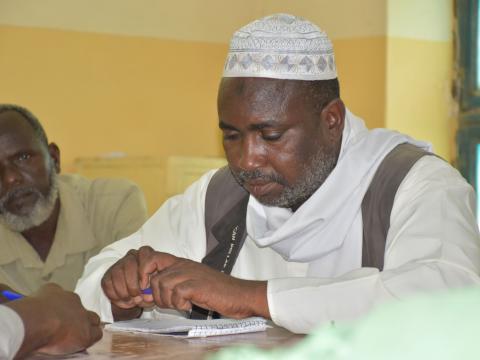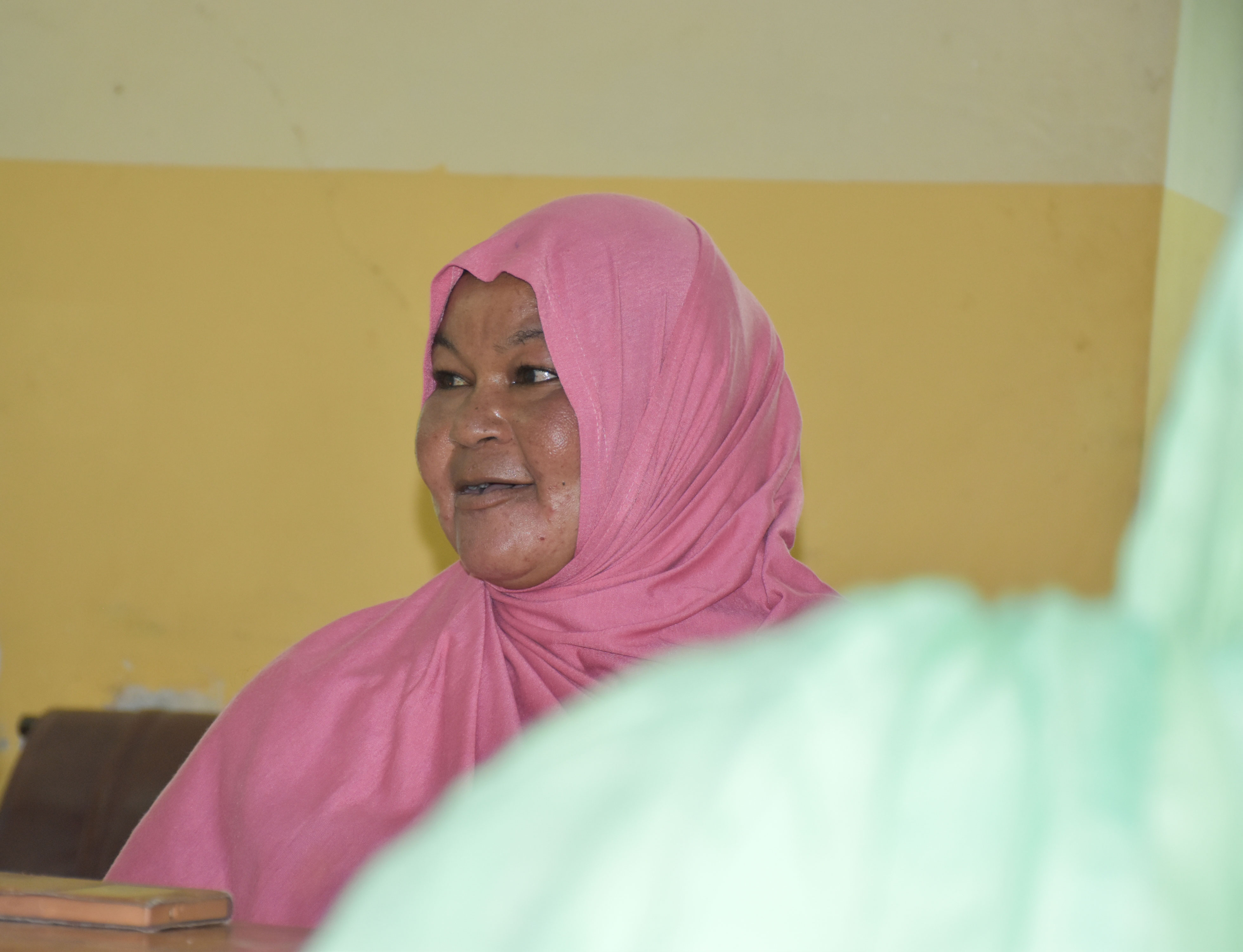World Vision engaging Faith Leaders to prevent and address harmful practices against children

World Vision is mobilising the support of faith leaders of both the Muslim and Christian faith to advocate for change, as part of its approach to promote a positive environment for children and ensure they are protected from abuse, exploitation and other forms of violence.
According to World Vision's Nazera Moahmed, faith leaders are respected members of the community and they have important platforms that can be used to advocate for positive change.
World Vision has equipped the faith leaders in Blue Nile state, with communication skills, particularly on approaching sensitive topics that are often considered taboo or of which people are shy to speak. Some of these topics include female genital mutilation (FGM), early marriage, domestic abuse and menstrual health.
“After we brought in an expert to train these leaders on owning these sensitive topics and confidently articulating them, we have seen conversations around FGM, early marriage and domestic abuse increase”, Nazera observes.
According to Nazera, seeing these conversations being normalised and previously taboo topics being discussed could just be the game changer in the efforts to prevent further abuse and violence against children.
When they are back in their communities, the faith leaders are part of the advocates of change, using their platforms and coffee gatherings to disseminate information. Because coffee and tea gatherings are an important fixture in our communities, we have redefined these gatherings to also use them for addressing issues that the community is facing.
Rabha Mustafa, a Sheikha (female faith leader) feels that as a woman leader, she is seen as trustworthy by other women, and in addition, other women are not shy to open up to her. They communicate freely, even sharing emotional and painful experiences they have been through.

Amal Saeed, also a Sheikha, appreciates the fact that now she is more confident to lead sensitive topics, because the training equipped her on how to have these in a non-judgmental way. “I believe this has also resulted in the women opening up and becoming more trusting in these forums than what we saw before when they did not speak of these things.”
The format in which information is shared has also evolved over time. “In the past, it was basically a lecture. It was not an interactive experience, no one even asked questions”, she recalls.
“Now, the fact that we have more women also leading conversations in these gatherings in an interactive format, women are more comfortable having these conversations.”
According to Amal, reinforcing the importance of girls’ education is really at the centre of their teachings. “We tell them how important it is for girls to receive an education, in order to be able to support and teach her children in the future.”
When it comes to FGM, virtually every woman has a painful story to tell, and they use their personal experience as a way to find common ground. Amal who uses her platform to share her own experience, is not shy to speak about how as result of FGM, she experienced complications giving birth to her first child.
Sharing personal stories of trauma and pain is a huge component of the mode of teaching, complemented with films and diagram presentations.
FGM practice is criminalised in Sudan
In July 2020, Sudan’s transitional government ratified a law, criminalising the practice of Female Genital Mutilation/Cutting in the country. Under the new law, practitioners of FGM could face up to three years in prison.
However, experts are concerned that enforcement and eradicating FGM will be an uphill task.
Another challenge is the fact that some of these practices are confused as an Islam requirement. “Most parents believe that they are required to perform FGM on their daughters, as part of Islam teachings.”
Part of what the faith leaders do, is therefore to correct those misconceptions.
The leaders also use their platforms to share such important information that may not be common knowledge to the critical masses. For example, when FGM practice was outlawed in 2020, the faith leaders used their platforms to continue educating the community on the new changes.
In the state of Blue Nile where World Vision is engaging these faith leaders, FGM prevalence stood at 68% in 2014, according to the Multi Indicators Cluster Survey (MICS).
The faith leaders have also been involved in setting up a warning system in each neighbourhood to report cases of abuse early.
“For example, if we hear of a case of a child about to be married off, through these community warning systems, we can intervene early before these plans progress. We have shared numbers to call, when they hear of a family planning to circumcise their daughter.”
They do the same with suspected cases of domestic abuse.
A call to normalise conversations on issues affecting girls and women
Mohamed Babiker, an Imam, is also using his platform and position to advocate for positive change.
“We are thankful to World Vision for providing us with training opportunities to increase our knowledge on how to identify and address issues that violate the rights of children, including equipping us with skills to communicate sensitive issues, otherwise considered taboo."
“Issues like menstrual health for example, as men we could not discuss it. Furthermore, we don’t pay attention to such issues and acknowledge the fact that our daughters are going through these life changes."
According to Mohamed, given that these issues are not given much significance in society, the same way they are not prioritised, even when it comes to allocating funds at household level. “Often money is not allocated for these young girls to buy the necessary sanitation items.”
The various trainings he has participated in, have however expanded his thinking to acknowledge that these issues are just as important and must be normalised.
To achieve this, Mohamed continues to use his platform, including during the Friday sermons to touch upon and reinforce such important topics.
Photos and article contribution by Sojoud Elgarrai, Communications officer - World Vision in Sudan
More about World Vision work in Sudan
World Vision started operations in Blue Nile state in 2005, implementing both humanitarian and resilience programmes. By 2025, World Vision will have contributed to the well-being of 221,350 most vulnerable children in the state, as direct beneficiaries through both humanitarian and resilience programmes.